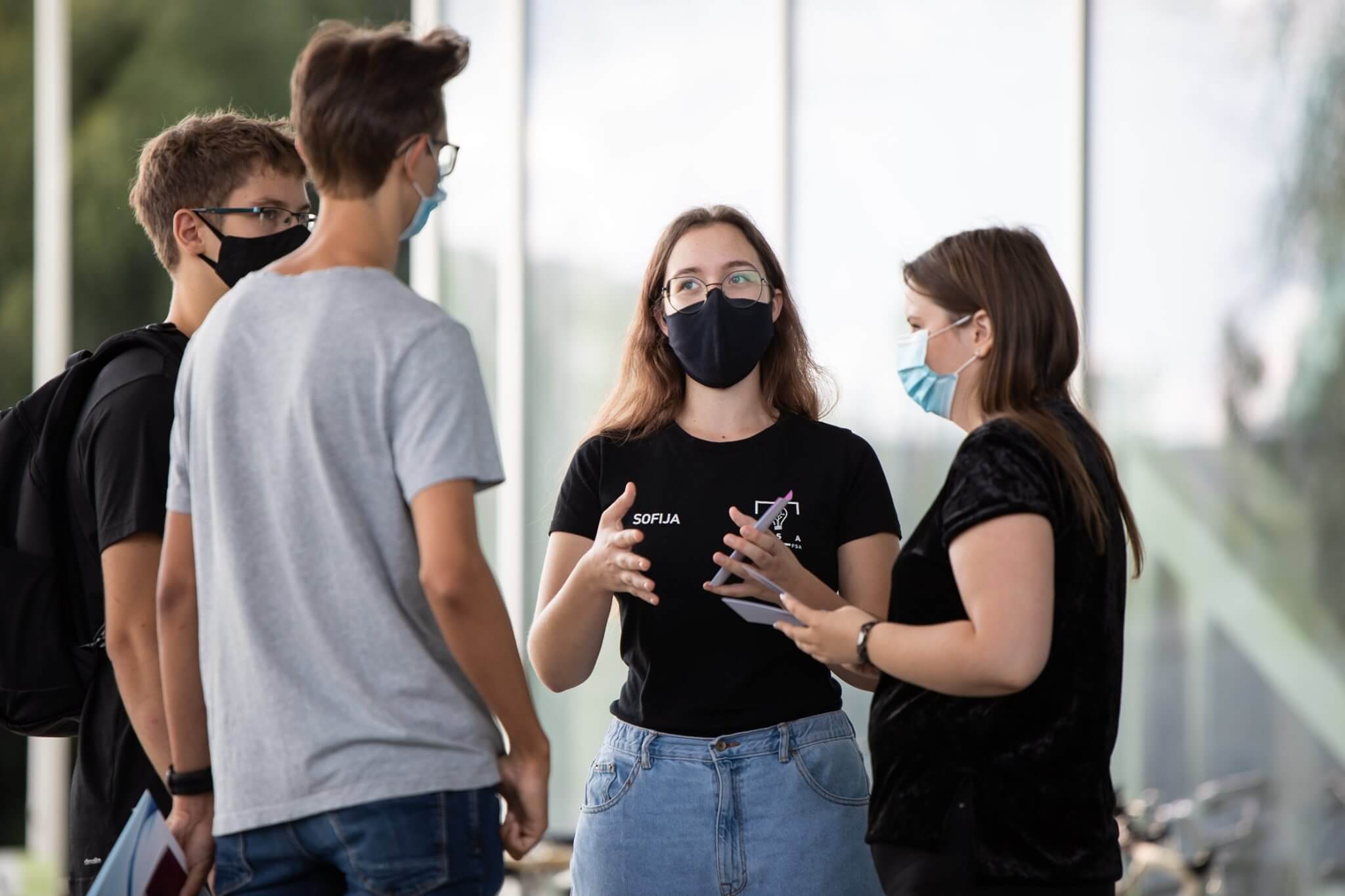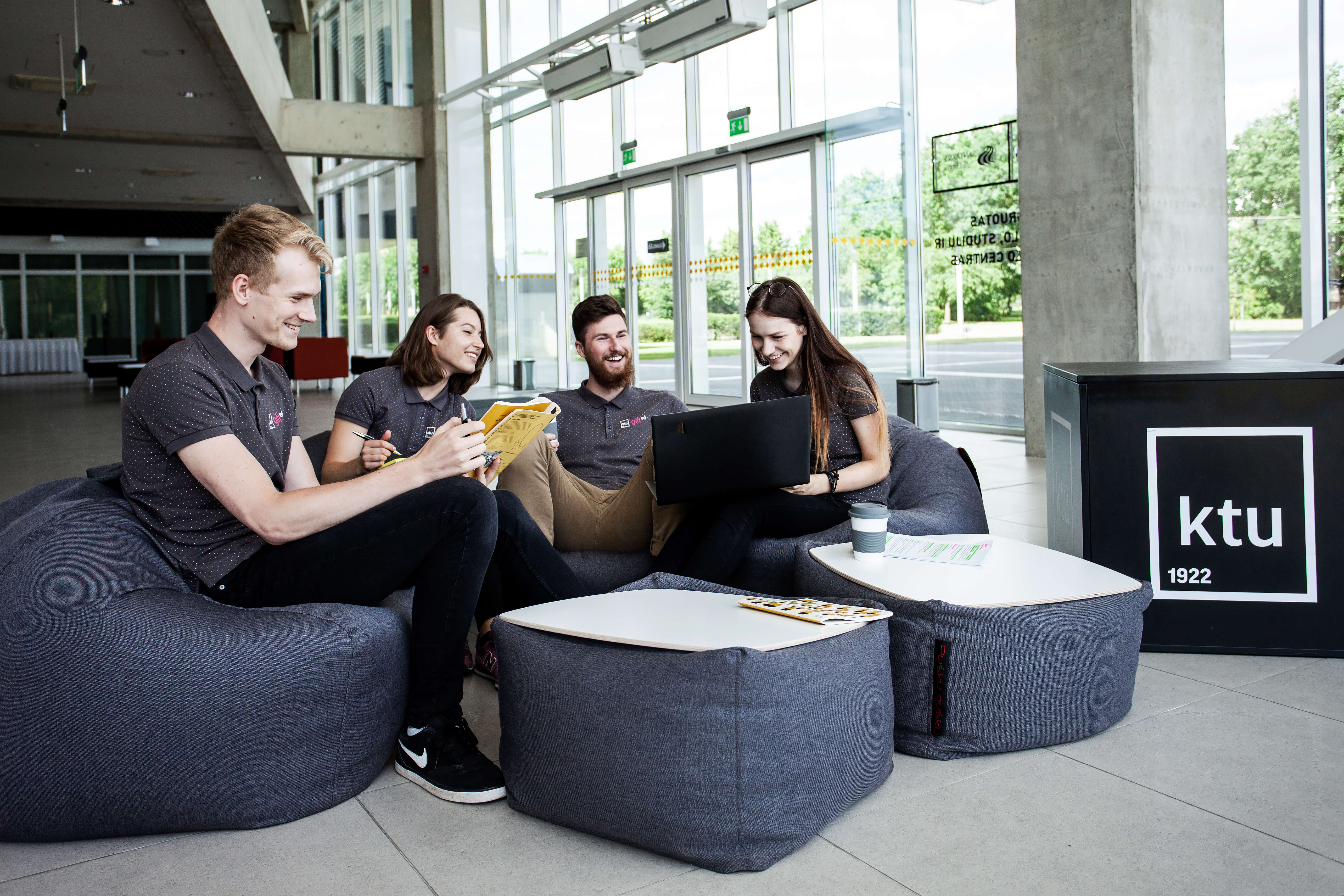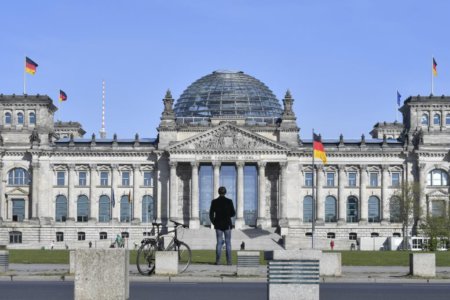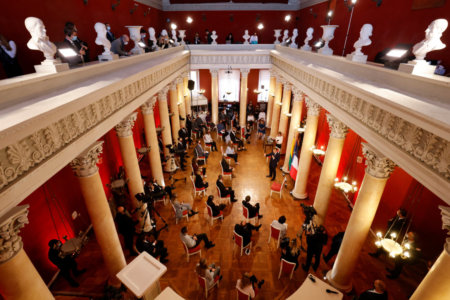Kaunas University of Technology is the home of technological education, championing innovation, advancement and sustainability. If you seek to conduct research at an international level, work on projects, specialise, explore other disciplines and have access to state-of-the-art equipment, you’ve come to the right place.
At KTU, located in Lithuania’s second-largest city, you’re set to earn a high-quality degree. According to national rankings, KTU is the most international in Lithuania. The university’s programmes are well-ranked by students and employers alike too. Sustainable development strategy and activities were awarded the European Union’s QUESTE-SI accreditation.

KTU provides a unique curriculum that supports students to explore their passions and develop new skills. Source: Kaunas University of Technology
“KTU has the supporting environment, where you can learn and use your knowledge to create, to discover something new and be part of the scientific community,” says Nóra Emilia Nagybákay, a second-year master’s student from Hungary. “And if you are stuck or have a problem, there will always be someone to help you out, be that your groupmate, mentor or academic advisor.”
The best part? It’s affordable. With all EU nationals and global citizens of Lithuanian origin qualified to apply and to compete for a state-funded spot, it should come as little surprise that KTU is ranked the second best university in Lithuania. “Lithuania is part of the European Union, so travelling and living are not strictly regulated,” shares Nagybákay. “As an EU citizen, I did not have to acquire a visa.”
Programmes that make a difference
KTU offers 25 master’s programmes in English taught by a team of dedicated faculty members plus a Master+ study model unique to Lithuania.
Students can choose the Field Expert track or the Interdisciplinary track. For the former, you will gain deep field knowledge and skills to solve scholarly research problems. For the latter track, you can add a different study area in addition to your main discipline. Each track consists of three subjects (18 credits) spread across three semesters.
Here’s a selection of programmes that follow this distinctive structure.
MSc Industrial Biotechnology
This programme will help you fill the skill gap in different science and industry fields: production of bioproducts, synthesis of biologically active compounds, enzyme technology, bioprocess engineering, environmental biotechnology, renewable technology.
You’ll learn to develop, produce, and analyse chemical compounds, materials, and fuel by applying innovative biotechnology methods. What’s more, you’ll be able to model, optimise, manage bio-processes and use your skills and knowledge in industrial biotechnology to produce biofuel, chemical substances or consumer goods of high-added value.
MSc Food Science and Safety
This is the only postgraduate programme in the Baltic States that has been awarded the international EQAS-Food Label quality label. Focus areas include future food technologies, bio-economy and functionality.
“KTU grabbed my attention because the Food Science and Safety master’s programme is designed to spend your time researching, while also taking the fundamental subjects,” shares Nagybákay. “It offered something new in the way of studying. They mentioned group works in laboratories, projects that we can build and showcase.”
MSc Environmental Engineering
For students who want to learn about the technological, analytical and managerial aspects of environmental protection, this programme fits the bill. Modules include Air Quality Engineering; Chemicals in Environment; Methods of Environmental Analysis; and Sustainability Management and Law.

KTU offers 25 master’s programmes in English taught by a team of dedicated faculty members. Source: Kaunas University of Technology Facebook
You will learn to add value and create comprehensive technological and business answers to environmental problems. This programme is the longest-running in educating environmental specialists in Lithuania.
MSc Chemical Engineering
Ever wondered how materials can be re-used to make products or how food can be kept fresh for longer? You’ll find answers to such questions and more in this programme. At the same time, you’ll learn how to turn raw materials into useful everyday products.
The programme covers three key topics: product development, development of technologies and product quality control. Its curriculum was developed in cooperation with the largest chemistry companies in Lithuania. Aspen, Bruker AXS, Netzsch, Cilas, Perkin Elmer, Gerhardt, O’Hara Technologies are some of the companies in collaboration with the programme.
MSc Applied Chemistry
Analytical chemistry underpins many important commercial enterprises from jet engine development to food production. It is applied to other academic disciplines such as earth sciences, medicine, archaeology, pharmacy and forensics too.
For those who imagine a career in developing innovative functional, hybrid, composite and nano-materials, and alternative energy, KTU’s Master’s in Applied Chemistry provides knowledge in all that and more. Students gain access to the latest complex chromatographic, spectroscopic, thermal, dynamic mechanical analysis, and other equipment.












